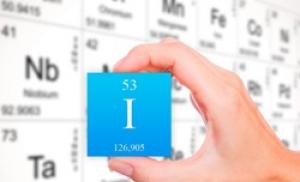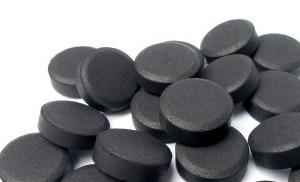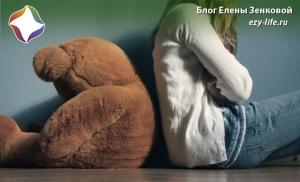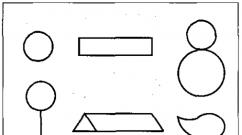The definite article in English. Rules for the use of the definite article
Add to favorites
Indefinite article a/an in English (the indefinite article) has two forms:
a[ə] - used before consonants. That is, if the word begins with a consonant sound, it is used a:
a b ok, a t able, a m an, a g irl, a c computer, a t omato, a yacht [ jɒt], a[ ˈj uːnɪt]
an[ən] - used before vowels. That is, if the word begins with a vowel sound, it is used an:
an a pple, an e ngineer, an i dea, an o range, an a nswer, an hour [ˈ aʊə(r)]
Please note that the choice of the form of the indefinite article is determined not by spelling, but by pronunciation.For example, the word hour starts with a vowel, so we use the article an (an hour), although the first letter is a consonant h. Or, for example, the word yacht (yacht) spelled with a vowel y, but the consonant sound [j] is pronounced, so we choose a (a yacht). The use of different forms of the same article helps to make speech harmonious, light, natural. Try to pronounce a apple or an book and you will feel how difficult and uncomfortable it is.
Remember:
Indefinite article a/an used only with in the singular:a pen(a pen), a story(story), a chair(chair), a child(child), a flower(flower)
If the noun is used in the plural form, then the indefinite article is absent. The absence of an article before a noun is commonly referred to as the "zero article".
pens(pens), stories(stories), chairs(chairs), children(children), flowers(flowers)
When the indefinite article a / an is used
Below you will find a description of the main uses of the indefinite article. a/an in English.
№1
Indefinite article a/an used when we first mention an object or person. In this case, we assume that our interlocutor does not know what or who we are talking about.
Yesterday I bought a handbag. — I bought a bag yesterday.
Up until this point, I hadn't even said that I was going to buy a bag. That is, I mention this for the first time (my interlocutor does not know anything about this bag), hence the indefinite article a/an.
If you continue to talk about this bag, then the noun handbag (bag) will already be used with the definite article the, since this time the interlocutor knows which particular bag we are talking about:
Yesterday I bought a handbag. The handbag is very beautiful. — I bought a bag yesterday. The handbag is very beautiful.
Although most often a personal pronoun is used instead of a noun, it sounds more natural and avoids repetition:
Yesterday I bought a handbag. It is very beautiful. — I bought a bag yesterday. She is very beautiful.
№2
Indefinite article a/an is used when we are not talking about a given (specific) object or person, but simply about any, about some, about one of a group of the same objects or people. In other words, when we talk about an object or a person in general, not meaning a specific skirt, work, handle or dog:
I want to buy a skirt. — I want to buy a skirt. (some kind of skirt, I don’t know which one yet; I only know that I want a skirt, not a dress)
He refused to look for a job. He refused to look for work. (any job)
give me a pen, please. - Give me a pen, please. (any, any)
It is a dog. - This is a dog. (some dog, any dog)
When we are not talking about a certain object or person, but about any, then further, if we need to re-designate it, we do not use personal pronouns or the definite article the. Again, we use the indefinite article a/an or pronoun one.
She wants a car but he says they don't need one. She wants a car, but he says they don't need it.
or
She wants a car but he says they don't need a car. She wants a car, but he says they don't need a car.
She wants to have a car (not a motorcycle, not a bicycle, but some kind of car, so a car), but he says that they do not need a car (they do not need any car at all, and not some specific one). Since in the second part of the sentence we are again talking about any / indefinite machine, we again use a car.
№3
Indefinite article a/an we also use to describe or give some information about what has already been mentioned before. In this case, an adjective is often used before the noun. Note that although the article comes before the adjective, it refers to the noun:
It is a beautiful place. - This is a beautiful place. (describe what this place is)
He is a clever boy. - He is a smart boy. (characterize what kind of boy he is)
Do you live in a big house? — Do you live in a big house? (we ask which house)
When we talk about a person's profession or work, we also use the indefinite article a/an:
She is a teacher. - She is a teacher.
I am a doctor. - I am a doctor.
№4
Historically indefinite article a/an derived from the numeral one (one). Hence the possibility in some cases to replace the article a/an numeral one. Such a substitution is possible when the article a/an essentially means "one". For example, this meaning of the indefinite article is observed in numerals a hundred (one hundred), a thousand (thousand), a million (million) and in the word a dozen (dozen) when they are used alone or before a noun:
This toy costs a thousand rubbles. = This toy costs one thousan d rubbles. This toy costs a thousand rubles (one thousand rubles).
give me a dozen, please. = Give me one dozen, please. - Give me a dozen, please (one dozen).
It is with the origin of the numeral one (one) and the meaning of the singularity of the indefinite article is connected, which is especially evident when expressing measures of time, distance, weight or quantity:
This chocolate bar costs a dollar. This bar of chocolate costs a dollar. (=one dollar, we can replace a dollar on the one dollar)
I'll call you in an hour. - I'll call you in an hour. (=in one hour, we can replace an hour on the one hour)
Can I have a kilo of tomatoes, please? — Can I have a kilo of tomatoes, please? (=one kilogram, we can replace a kilo on the one kilo)
Please note that the numeral one instead of the article a/an should only be used if you want to emphasize that you are talking about exactly one thing or person, that is, when you want to be very precise:
I have got one sister. - I have one sister. (not two sisters, not three, but only one)
I have got a sister. - I have a sister. (in this case, I'm just reporting that I have a sister)
The meaning of the singularity of the indefinite article can be seen in some stable phrases that convey the one-time action:
have a look- take a look
have a snack- have a snack
have a try- try, try
have a rest- relax
have a good time- have a good time
give a chance- give a chance
give a hint- hint
give a lift- give a ride
make a mistake- make a mistake
play a trick- play a trick
№5
Indefinite article a/an also used when it is necessary to indicate the quantity per unit of measure. For example, when we talk about the price of oranges per kilogram, the amount of wages per month, the number of classes per week, or the speed of a car per hour. The noun denoting this very one unit of measurement will be used with the indefinite article.
The oranges were 80 rubles a kilo. - Oranges cost 80 rubles per kilogram.
She works 8 hours a day. She works 8 hours a day.
I go to aerobics twice a week. — I go to aerobics twice a week.
№6
Indefinite article a/an can also be used with some uncountable abstract nouns (for example, humor - humor, hatred - hatred, anger - anger, magic - magic) when they carry an adjective. Usually such use of the indefinite article is characteristic of the book style and expresses the author's desire to emphasize the individual, special character of this or that abstract concept.
Note that in the case described above, the use of the indefinite article is optional. If you do not want to emphasize in a certain way the special character of any emotion, character trait, etc., the article a/an may not be used.
On a note
To learn how to use the indefinite article a/an more or less automatically, try forming this rule in your head: use the indefinite article with singular countable nouns when there is no other reason to use the definite article the or some other determiner (possessive or indefinite pronoun).
, Chinese, Japanese, Tamil, Thai, do not have articles at all (if necessary, words such as “one” or “this” are used to indicate the indefiniteness or definiteness of a word). There are also languages like Welsh, Arabic, Icelandic, Hebrew, Armenian (as well as artificial languages like Esperanto or Ido) that only have a definite article but no indefinite. In some languages, such as Turkish, there is only an indefinite article, and its absence indicates the definiteness of the object.
In most languages, the definite article has evolved from a demonstrative pronoun or an adjective. For example, from the demonstrative pronoun ille in Latin (which itself had no articles), the Romance languages that descended from it developed articles le(French), el(Spanish), il(Italian). The indefinite article occurs or even coincides with the numeral "one" (Germ. ein(e), French un(e), Spanish un(a) port. um(a)).
Grammatical functions of articles
- First the grammatical function of the article is "the grammatical designation of its accompanied", that is, a sign of the name. This is the single-valued article in Arabic. Due to this, in many languages, adding an article to non-nominal words and forms translates them into a noun. This is how conversion occurs when a given word goes into another category and falls into a different paradigm without changing its morphological composition. Yes, in German schreiben- "to write", and Das Schreiben- "letter" (that is, "scripture"); in french diner, souper- "lunch", "supper", and le diner, le souper- "lunch", "dinner".
- Second The grammatical function of the article is the distinction between the grammatical category of definiteness and indefiniteness when there are paired articles: the - a(an)- in English; der-ein, die-eine, das-ein- in German; le-un, la-une- in French, etc. A category accompanied by a definite article, as a rule, expresses grammatically what the interlocutors already know, or what the interlocutors have in front of their eyes during a conversation, or something that is specially highlighted individually.
- Third the grammatical function of the article is the distinction of gender in its pure form, that is, with the same word in the same form, which is rare, more often with the names of any peoples whose language does not know gender distinctions, for example, in German derHausa- "a man from the Hausa tribe" and die house- "a woman from the Hausa tribe."
Noun agreement
In many European languages, the article agrees with nouns in number, gender and case (if the above categories are present in the language). In some cases, it is the article that makes it possible to distinguish the gender, number or case of a given word.
So, in French, where plural nouns are often pronounced the same way as in the singular, it is the article that serves to distinguish between numbers.
In some languages there are homonyms that differ only in the gender expressed with the help of the article, for example. German die Steuer(tax), das Steuer(steering wheel, steering wheel), sw. en plan(plan), ett plan(airplane).
Also in some languages, in particular in German, the article is used to distinguish the case of a noun, for example. Wirgehen in die Schule(we're going to school, vin. p.) Wir lernen in der Schule(we study at school, dt. p.)
Differences in use
The use of articles in different languages varies. For example, French uses the definite article where English does without an article, for example, with uncountable nouns.
In both ancient and modern Greek, the article is used with proper names: ὁ Ἰησοῦς (Jesus) and can also be used before a noun and each of its adjectives ( ὁ πατὴρ ὁ ἀγαθός good father). In Portuguese, proper nouns are also used with an article, except when it is an official language and there is no title before the name. Similarly, the article before names can be used in spoken German, e.g. Ich habe mit der Claudia gesprochen(“I spoke with (this) Claudia”), the same forms are found in colloquial Italian and Catalan (cf. in Russian: “Yes, you are Petru- then tell").
Location of the article
In most languages, the article is placed before the noun that refers to it (the prepositive article). In Scandinavian languages, the article can be placed at the end of a word (postpositive article). Yes, in Swedish planen- plan, planet- aircraft, the case of a double definite article is also possible, when both a separate article and an article at the end of a word are used ( det stora huset, big house). Several Balkan languages also use the postpositive article, such as in Romanian consulul- consul, similarly in Macedonian and Bulgarian, for example. darvo, darvoto(wood).
Unlike the case forms of the Russian language, in the Bulgarian and Macedonian languages, if there are adjectives or numerals for nouns, then the definite article is placed only at the end of the first word and the rest agree only in gender and number. Examples: in Bulgarian furnace(ball) → rear firebox that (behind the ball) firebox → kjm byala that furnace(to the white ball) golyama firebox → for golyam that firebox(about a big white ball); similar in Macedonian prvi movie → on prvi from film(of the first film). The indefinite article in these languages is the words one / one / one(one / one / one), which are placed before a group of words: one wife(a certain woman), although a noun without an article is also indefinite. If necessary, to emphasize indefiniteness, indefinite pronouns are used. some(somebody), nakakv(some) nobody's(someone's) which yes(anyone).
Pronominal adjectives
In some languages derived from the hypothetical Balto-Slavic, e.g. Lithuanian, Old Slavonic, there is such a phenomenon as pronominal adjectives (definite, member adjectives). Such adjectives are formed by adding personal pronouns of the 3rd person to ordinary, simple adjectives, which make up a single word with these adjectives; at the same time, during declension, both parts are usually inclined, both the adjective itself and the pronoun. Such adjectives are used to distinguish an object from their own kind, to emphasize the certainty of this object, thus, their use is approximately the same as the use of a definite article. Wed Lithuanian:
- geras mokytojas- a good teacher, gerasis (geras+jis) mokytojas- the good teacher;
- auksta mokykla(high school, i.e. school building), aukštoji (aukšta+ji) mokykla(higher school, i.e. university).
According to a similar principle, pronominal adjectives are formed in the Old and Church Slavonic languages:
- high house - high(high+i) house
- deep river - deep(deep + me) river
(In these examples, "and" and "I" are old Slavic pronouns corresponding to the current "he", "she".)
The use of adjectives was similar. In particular, when translating into Slavonic from the Greek Bible and liturgical books, Greek phrases where the adjective is used with a member (i.e., the article) were usually transmitted by pronominal adjectives. However, already in Church Slavonic this ratio is not always maintained. In the modern Russian language, although these forms have been preserved (short and full adjectives), they have largely lost the meaning of certainty-uncertainty and differ more in terms of style.
In addition to pronominal adjectives, there are also, although less frequently, pronominal pronouns. Eg. in Lithuanian: jų(them), jųjų(also "them", but with the meaning of certainty). In Russian, this corresponds to such words as "theirs", "theirs", although they are considered colloquial.
Definite articles in Russian dialects
There have never been articles in the literary Russian language (except for the pronominal forms of adjectives mentioned above). In some dialects and colloquial use, however, such elements do occur. As a typical example, we can cite a fragment of one of the letters of Archpriest Avvakum:
“... And then, as you prayed in truth, close your eyes, but let your mind go through the air and firmament and ether to Hope and His throne, and he himself hit the ground, but lie down and don’t get up, crying: already -zho mind-from Christ-that will be dragged from heaven, how much you offend the heart.
It is easy to see that the particle agreed in gender and case with the noun "-then" acts here precisely in the role of a definite postpositive article, completely analogous to the article in the Bulgarian language. However, the use of such an article did not go beyond colloquial speech and was optional; the same Avvakum in his texts uses it only sporadically. The particle “-to” in modern Russian is a trace of this article, which has ceased to change by gender, case and number.
Links
Wikimedia Foundation. 2010 .
See what the "Definite article" is in other dictionaries:
See article...
- (French article from Latin articulus member). An auxiliary word (particle) in some languages with nouns to express their use in a definite or indefinite meaning. Definite article. The article used in ... ... Dictionary of linguistic terms
The article in German is a special part of speech that accompanies a noun, reflecting the category of its certainty or indefiniteness and indicating the gender, number and case of the noun. In German, a certain one is distinguished ... ... Wikipedia
- (French article lat. articulus) thunder, a member attached in some languages to a noun and giving it the meaning of certainty or indefiniteness, identity to the previously mentioned noun, as well as gender, number and some other meanings; in… … Dictionary of foreign words of the Russian language
Theism- (the ism, from the English definite article the) a philosophy of certainty, articulation of things, which comes from the distinctive properties of the language and, in particular, the definite article, from which it gets its name (the ism). ... ... Projective Philosophical Dictionary
Self-name: ʻŌlelo Hawaiʻi Countries: USA ... Wikipedia
This term has other meanings, see Bundle. A bunch (copula, lat. Copula) in linguistics is a special word for connecting a subject and a predicate, expressed not by a verb, in a sentence (in sentences like Petya () ... ... Wikipedia
This article should be wikified. Please, format it according to the rules for formatting articles. This term has other meanings, see Maori ... Wikipedia
That is, the absence of the article. Consider when the article the is used, which, by the way, according to linguists, is the most common word in the English language, although, of course, it is difficult to call it a word.
How to use the definite article THE - the basic rule
Most of the rules for using the definite article the are as follows: the is placed before a noun denoting something specific. The article the itself comes from the word that (this, that) - knowing this, it is easier to understand how it is used.
This is the place that we were talking about. - This is the place we were talking about.
You have the file that I need. – Do you have the document that I need.
The article here defines not, of course, but the noun defined by this adjective. The article the is needed because the superlative degree of a sign or person distinguishes it as unique:
This is the most delicious ice-cream in the world. - This is the most delicious ice cream in the world.
He is the smartest student in the university. He is the smartest student at the university.
5. Before a number of adjectives implying the uniqueness of the subject.
These are words like the same(same), only(the only one), left\right(left \ right). Like superlative adjectives, they indicate the specificity of what is being said.
This is the only way out. - This is the only way out.
turn the left valve, please. – Turn the right valve, please.
My sister had the same problem. My sister had the same problem.
6. Before ordinal numbers.
Ordinal - denoting a number, not a quantity. If an item is "first" or "twentieth", this implies its relative uniqueness (in the context of the conversation). This also applies to words like the last(last), the previous(previous), which are similar in meaning to ordinal numbers.
Who was the first human in the space? Who was the first man in space?
I am reading the third chapter now. I am currently reading the third chapter.
Let's invite the previous candidate again. Let's invite the previous candidate again.
This is the last warning. “This is the last warning.
7. Before the names of people, when it comes to the family as a whole.
The surname is used in the plural, as in Russian.
I don't know the Allens, but they seem to be nice people. “I don't know the Allens, but they seem like nice people.
The Petrovs moved out on Monday. The Petrovs moved out on Monday.
8. Before wordspast, present, future, winter, spring, summer, autumn (fall).
These words are worth highlighting separately, because many expressions of time use the indefinite or zero article, for example: a week ago(a week ago) on Monday- on Monday. Speaking of the past, future, present, we use the:
That is my plan for the future. Here is my plan for the future.
Whatever happened in the past, stays in the past. Whatever happened in the past, it will remain in the past.
When we talk about the seasons, we use the when we mean, say, the fall of a certain year. Speaking about the season in general, we use the zero or definite article:
- I moved to London autumn of 2010. – I moved to London in autumn 2010.
- Poets love (the) autumn. Poets love autumn.
Note: the words autumn and fall mean "autumn" autumn is the British version fall- American.
9. Before some place names
- a rather confusing topic, I will highlight the main cases:
- The article the is not needed before names of single-word countries (Russia, Spain), but is needed before names that include words like federation, kingdom, states: the Russian Federation, the Kingdom of Spain, the United Stated of America.
- The is also placed before place names used in the plural: the Netherlands(Netherlands), the Virgin Islands(Virgin Islands), the Urals(Ural Mountains).
The article THE before adjectives and pronouns
Any article, both the and a\an, can be used before an adjective. The article at the same time determines the noun, the attribute of which denotes this adjective:
This is the new guy I told you about. “This is the new guy I told you about.
Have nice day. - Have a nice day.
Neither the article nor a \ an is used before a possessive (my, his, your, etc.) or demonstrative (this, these, that, those) pronouns that define a noun - it already speaks of belonging in itself, and therefore the specificity of the subject.
- Not properly: Where is my car?
- Correctly: Where is my car?
Hello my wonderful readers!
You can probably guess what is the most frequently used word in English speech, right? Of course it is the article "the". And today we will analyze where its use in English is appropriate and where it is not. We will study the rules for its use, look at numerous examples, and analyze a table with stable expressions that you can always have at hand. And then you can go to and to consolidate everything you learned here.
Go ahead, friends!
A little bit of grammar
If the article “a” (about it in detail!) Is used only with nouns that can be counted, then “the” is used with all nouns: and in singular and plural; both countable and non-countable items .
By the way, the pronunciation of the article also changes depending on which letter the next word begins with. If the word begins with a consonant, then the article is pronounced like [ðə], for example the banana - banana. But if the subject begins with a vowel, then it is pronounced like [ði], for example, the apple - Apple.
When to use
- If in speech or in writing the subject has already been mentioned, then in the future you can put this article with it.
I received an e-mail from my friends. The letter told me that they would visit me on the weekend.- I received a letter from my friends. The letter said that they would visit me over the weekend.
- With unique items that are one and only of their kind, we also use the - the sun, the moon, the Earth.
The moon today is extremely beautiful. The moon is incredibly beautiful today.
- The article has a special relationship with geographical names. With titles rivers, deserts, oceans, island groups and mountain ranges we can confidently use the article, but we must not forget about exceptions. I am very detailed about them.
The Atlantic Ocean is the most beautiful ocean on the planet.- The Atlantic Ocean is the most beautiful ocean on the planet.
The Comoro Islands attract lots of tourists every year.- Comoros attracts many tourists every year.
- With titles hotels, cinemas, ships, museums, galleries and newspapers we most often also use the definite article.
The Hilton hotel is about to open in our city.- In our city, the Hilton hotel is about to open.
The Louvre is the most attended museum in Europe.- The Louvre is the most visited museum in Europe.
- With adjectives in the highest degree of comparisons: the most, the best, the worst.
The most beautiful place I've ever been is Japan in spring.- The most beautiful place I have ever seen is Japan in the spring.
The best books I've ever read were about Harry Potter.- The best books I've read are Harry Potter.
- With musical tools and titles dancing.
The violin is my most beloved musical instrument.- The violin is my favorite musical instrument.
The contemporary has become very popular among dancers some years ago.- Contempo became very popular among dancers a few years ago.
When not used
It is important to know when the definite article is used, but it is equally important to know when it is. not used.
- with plural nouns that can't be counted when we say something general.
Trees produce oxygen.- Trees produce oxygen. (any trees, in general)
- With names own and before names we never use it.
Jinny is very talented. She can play 3 different musical instruments. Ginny is very talented. She can play three different instruments.
- With titles countries, cities, streets, parks, mountains, lakes, bridges and islands we try to avoid it.
Spain is mostly famous for its football club Barcelona. - Spain is mostly known for its football club Barcelona.
I dream of climbing Everest.- I dream of climbing Everest.
- With titles sports, activities, games, colors, days, months, drinks, meals he is not friendly.
I can speak Turkish a little.- I can speak Turkish a little.
I was born in July. - I was born in July.
My favorite color is green. - Green is my favorite color.
- If we have pronouns this, that, those- we not use "the". In addition, with possessive pronouns (and the possessive case in general!) we also do not use it.
This the ball was signed by a famous football player.- This ball was signed by a famous football player.
Kathy's dress is ready. I've already cleaned it.- Casey's dress is ready. I cleaned it yesterday.
- With words school, church, hospital, college, university, court, prison we use it or we don't use it depending on meaning. Let's see an example:
I go to school from Monday to Friday.- I go to school from Monday to Friday. (as a student)
My mother went to the school for a meeting. My mother went to school for a meeting. (As a parent, not as a student)
- With titles diseases we can also use or do not use article.
I've got (the) flu. - I got sick.
Set expressions
Both the and a form fixed expressions that cannot be changed in any way. So let's get to know them (By the way, if you need general information about the articles of the English language, then you are).
I am sure that now that you have a hint in the form of a table and structured rules in your hands, it will be much easier for you to master the ones that I have prepared for you. And after them, you can move on to. Practice as much as possible, study, learn new rules and improve your English.
And I am ready to help you with this. The materials on my blog are constantly updated, and my subscribers receive them even before they appear on the site. I look forward to seeing you there as well, to share important materials with the very first.
And for today I say goodbye.
It is impossible to brag about knowledge of grammar in English without knowing minor at first glance, but important details, for example, articles. One of the most insidious and treacherous of these is the definite article "the". When communicating with a native speaker, it is very easy to "sleep" by using it out of place, or vice versa, missing it. Knowing the following 10 rules, you will be able to
strengthen your knowledge on the front of articles and be more confident in the correctness of your sayings. But be extremely careful - the rules are full of exceptions and pitfalls. Don "t say "thanks" just yet. Check what we have in store for ya!
Let's start simple. You use the article when you want to distinguish a word from other possible versions. If there is no confusion as to what you mean then you do not use the article. Therefore, if everyone already knows, for example, where you go to school (to university or to work), you just say: "I"m going to school", because there is no confusion. Or if you say that ever going to school in general, you do not use the article « the". The same applies to the house - usually everyone has one, and hell with Paradise, which everyone is aware of. So, when you once again think about where you will go after death, think in English, and do it correctly: "I "m going to hell." However, when we talk about special hell of a particular religion, the article "the" should already be: " The hell of Islam is far worse than the hell of Chirstianity.»
With that being said, it is important to remember that if noun countable (one gun, two guns), then always put the article (the / a / an). And at the same time remember that can't bet his before plural (guns, books) or incalculablenouns(water, blood, advice, chocolate, meat etc.).
Generally
We don't set « the", when talking about something generally, no specifics.
Cats are awesome pets!
Here we are not talking about one particular awesome cat or pet, but about all the awesome cats and pets at once.
Women love it when men do it right.
People are evil in that neighborhood.
Sport
Names of sports and other types of physical activity do not require the article "the".
I love to go skiing in the winter.
I play baseball every day after school.
He loves watching hockey on TV.
She does yoga 3 times a week.
My daughter really enjoys dancing.
A family
We use « the" when we say about family(name) but not about a specific person or combinations with names:
We're having dinner with the Smiths tonight.
The Browns are going to play with us.
John is coming over later.
Mary Carpenter is my boss.
Prince Charles is Queen Elizabeth's son.
President Kennedy was assassinated in Dallas.

Numbers
Do not put the article, when:
- after the noun comes the number:
He's staying at the Haunted hotel in room 221.
The train to Noplaceville leaves from platform 2.
My Exorcism class is in room 6 on the first floor("first" acts as an adjective in this sentence and describes "the floor" - floor).
- year indicated:
1948 was a wonderful year.
He was born in 1995 .
We put the article before:
- superlative adjectives and ordinal numbers:
the third movie
the tallest kid
the last hour
- decades and other periods of years:
I"m the kid of the nineties.
This is a painting from the 1820's.
Only
If the sentence contains such a word, then feel free to sculpt “the” in front of it:
This is the only day we "ve had sunshine all week.
You are the only person she will listen to.
The only tea I like is black tea.

Not the first time
We put " a when we talk about something for the first time, and then change to « the', when what is in question it's getting clear. Also put « the', when all quite obvious or when something or someone is one of a kind. Using this rule, you will be right in most cases, but remember about hell and heaven.
He was talking to a man. The man was laughing.
She gave him a present. The present was very expensive.
I cleaned the bathroom this morning.
the sun is hot today.
He traveled around the world.
Breakfasts, lunches and dinners
We do not use article before meal names:
We had lunch at none.
I have breakfast at 7 a.m.
proper names
Majority names holidays, companies, languages, countries, streets, airports, stations, cities, continents, islands, individual mountains, lakes etc. are all proper names, and article here usually not needed. But it is in this section of the rules for the use of "the" that there is many exceptions so be extremely careful.
McDonald's has restaurants in 119 countries.
Victoria Station is in the center of London.
Can you direct me to Bond Street?
She lives in Florence.
I got some cool ideas for Halloween. (there is only 1 Halloween that everyone knows about)
Asia and Europe are two continents, in case you didn't know.
Her son graduated from Harvard. (but "He has a master's degree from the University of Toronto»).
I'm leaving for America next week (but " the United States»).
Lake Ontario and Lake Huron are 2 of the Great Lakes("the Great Lakes" - a group of lakes on the border between Canada and the United States requires an article).
I teach people how to speak English / Chinese / Spanish / Russian(however, when talking about the inhabitants of a particular nation: " The Spanish are known for their warm hospitality").
Mount Everest is the one I plan to climb next week (but " the Endes», « the Rockies” or unusual names for individual mountains, such as Mt. the Matterhorn"(peak in the Pennine Alps).
Easter Island, Maui, Key West- none of these islands I "ve visited (but chains islands like " the Aleutians», « the Hebrides" or" the Canary Islands» require an article).

Names, establishments and places
We do not use « the" before:
- names of professions, subjects at school, shops and some places:
My office is located on main street/Washington Blvd.
I usually go to Church on Sundays.
Did you go to school today?
She's studying business at university.
Engineering is a well-paid career.
He'll probably study medicine.
I'll get the card at Smith's.
Can you go to Boots for me?
- names of subjects at school:
math
geography
business
history
science
- before the following words in a general sense:
school
prison
college
I hope to go to college.
He spent three years in prison.
We use « the" before:
- names of rivers, oceans and seas ( the Nile, the Pacific,the Arctic, the Atlantic, the Black Sea, the Thames);
- countries ( the Netherlands, the Philippines), also before those whose names include the words " republic", « states" and " kingdom» ( the Czech Republic, the Dominican Republic, Republic of Ireland, the United States, the United Kingdom);
- points of the globe ( the Equator, the North Field);
- geographic areas ( the Middle East, the West);
- deserts, forests, bays and peninsulas ( the Sahara, the Persian Gulf, the Black Forest, the Iberian Peninsula).
- names of newspapers and famous buildings, works of art, museums and monuments ( the New York Times, the Guardian,the Vietnam Memorial, the Louvre, Mona Lisa, the Eiffel Tower,the Globe).
- before the names of hotels and restaurants, unless they are named after a person ( the Golden Lion, the Hilton).
- in front of already known places where people usually go ( the bank, the supermarket, the doctor's)
Let's go the movies.
My dad is in the hospital(Americans will put the article here, but the British can omit it).
She works at the post office.
What time do you have to be at the airport?
Please drop me off at the bus stop.
She doesn't like to go to the doctor or the dentist.

Abbreviations
Or acronyms - an abbreviated form of the name of something, using the capital letters of each word to form a new one. So here it is if the acronym is pronounced like a word, we do not use « the»:
NATO[’neɪtoʊ] (North Atlantic Treaty Organization is pronounced in one word here) ambassadors met to discuss the situation.
UNSECO(United Nations Educational, Scientific and Cultural Organization) was formed in 1946.
Sorry, you've got AIDS(Acquired Immune Deficiency Syndrome).
The same goes for abbreviations. names of educational institutions:
She has a Ph. D from MIT(Massachusetts Institute of Technology).
However, if abbreviation is spelled, then article"the" is needed. And you may well say the NATO member(member of NATO).
The UN was created after the Second World War (United Nations = UN and spelled).
The same applies to the following abbreviations:
the EU(European Union)
the US(United States)
the CIA(Central Intelligence Agency)
the FBI(Federal Bureau of Investigation)
Now you are supposed to be from "the" to "you", but do not rush to be familiar. Do not forget about exceptions and the main rule. Good luck with learning English and keep the progress going!
Big and friendly family EnglishDom













